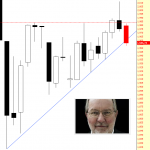
Last year, investors and analysts fretted over the possibility of a Grexit — Greece leaving the European Union. In the long run, Greece doesn’t provide much to the Eurozone economy, but the ramifications of the move were unknown, and uncertainty is the enemy of rational markets.
So now that United Kingdom is considering leaving the European Union, it looks like we’re starting this whole process all over again. The country isn’t exactly part of the Eurozone, having opted to keep its currency when the EU was formed. But much like Germany, the Eurozone’s largest economy, the UK hasn’t been the reason the EU economy has struggled so much of late.
The case against
That doesn’t necessarily mean it’s a great idea for the UK to leave. BlackRock, the world’s largest fund manager, says a Brexit would be bad news for the UK economy, potentially leading to lower growth and investment, along with higher unemployment and inflation.
BlackRock’s not the only one concerned with a potential “Leave” vote. The Cabinet Office undertook the government’s first official analysis of the consequences of a Brexit, and concluded that it would take ten years for the UK to extricate itself from the European Union, during which time car manufacturing, farming, financial services and the lives of millions of Britons would be negatively affected.
“A vote to leave the EU would be the start, not the end, of a process. It could lead to up to a decade or more of uncertainty,” they concluded.
Why would it take ten years instead of the two stipulated by current treaties? Not only will the country need to go through the process of leaving the EU, but it will also have to set up new trade and similar agreements, while also negotiating new trade deals with other countries.
The case for
Not everyone in the government agrees with this assessment, however. Chris Grayling, the leader of the House of Commons, disagrees with the idea that it will take a full decade to negotiate new arrangements.













Leave A Comment